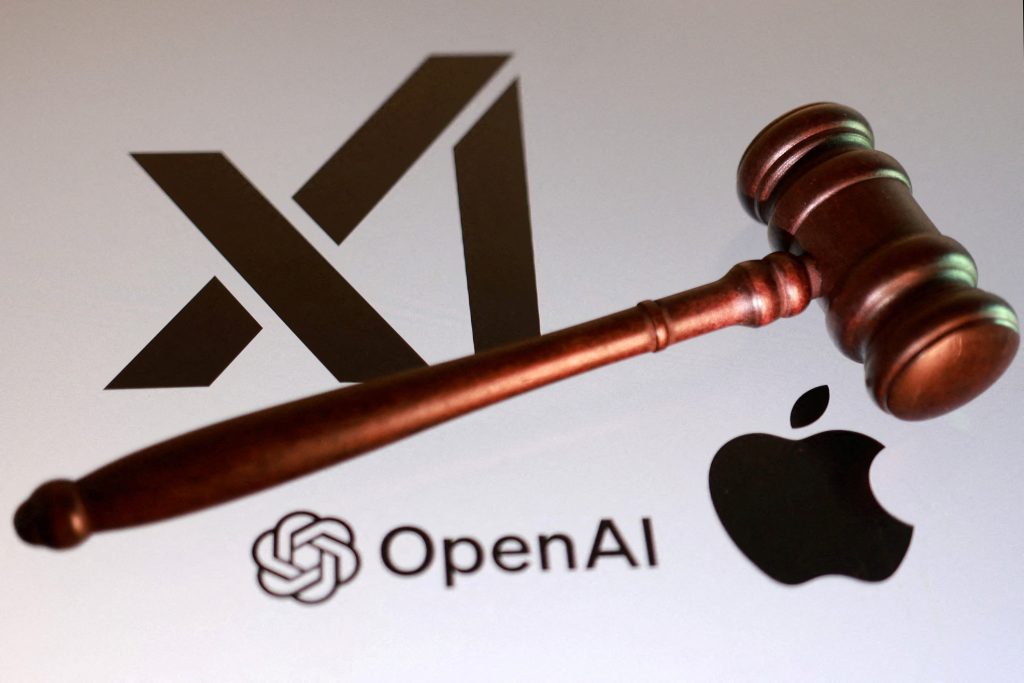Elon Musk is taking his AI rivalry to federal court. His artificial intelligence company xAI filed a lawsuit Monday against tech giant Apple and ChatGPT creator OpenAI, claiming the two companies are working together to unfairly dominate the AI market and shut out competitors.
The lawsuit, filed in U.S. federal court in Texas, alleges that Apple and OpenAI have created an illegal conspiracy that prevents other AI companies from competing fairly. According to the legal filing, the partnership between these industry titans has allowed them to “lock up markets to maintain their monopolies and prevent innovators like X and xAI from competing.”
At the center of this legal battle is Apple’s decision to integrate OpenAI’s ChatGPT directly into its operating systems for iPhones, iPads, and Macs. This exclusive partnership, xAI argues, gives OpenAI an unfair advantage while blocking other AI companies from reaching Apple’s massive user base.
Musk’s xAI Sues Apple, Alleging App Store Suppression and “Exclusive” OpenAI Deal
Musk’s company claims that without this exclusive deal, Apple would have no reason to downplay competing AI apps like Grok, xAI’s own chatbot, in its App Store. The lawsuit points to what xAI sees as deliberate suppression, noting that despite Grok receiving over a million reviews with a 4.9-star average rating, Apple still refuses to feature it prominently in any App Store lists.

“If not for its exclusive deal with OpenAI, Apple would have no reason to refrain from more prominently featuring the X app and the Grok app in its App Store,” the lawsuit states. xAI is seeking billions of dollars in damages from what it claims are these anticompetitive practices.
OpenAI didn’t take the accusations quietly. A company spokesperson dismissed the lawsuit as part of what they called “Mr. Musk’s ongoing pattern of harassment.” This response highlights the increasingly bitter relationship between Musk and the AI company he helped found back in 2015.
Apple, meanwhile, hasn’t publicly responded to the lawsuit yet, leaving questions about how the iPhone maker will defend its business practices.
The lawsuit emerges at a moment when the artificial intelligence sector is seeing rapid expansion and cutthroat competition. OpenAI’s ChatGPT broke records as the fastest-growing consumer app ever when it launched at the end of 2022, triggering a rush by technological companies to create and introduce technologies in artificial intelligence.
Musk’s xAI vs. Apple: A Groundbreaking Antitrust Case for the AI Industry
Musk’s xAI, launched less than two years ago, is trying to catch up with established players like Microsoft-backed OpenAI and newer challengers like Chinese startup DeepSeek. The company acquired X (formerly Twitter) in March for $33 billion, partly to enhance its AI training capabilities. Musk has also integrated Grok into Tesla vehicles, showing his broader strategy to embed AI across his business empire.
Antitrust experts see this case as potentially groundbreaking for the AI industry. Apple’s dominant position in the smartphone market could strengthen xAI’s argument that the company is illegally tying iPhone sales to OpenAI’s services.
However, Apple has strong defenses available. The company could argue that partnering with OpenAI was simply a smart business decision in a competitive market, and that it has no obligation to help rivals gain market share. Apple might also point to security or operational benefits of integrating AI into its operating system.
“It’s a canary in the coal mine in terms of how courts will treat AI, and treat antitrust and AI,” said Christine Bartholomew, a professor at the University at Buffalo School of Law.
Antitrust Lawsuit Puts AI Partnerships in the Crosshairs
This lawsuit could give U.S. courts their first major opportunity to define what constitutes the AI market and how antitrust laws should apply to artificial intelligence partnerships. The outcome could shape how tech companies collaborate on AI development and integration going forward.
For Musk, this represents another front in his ongoing battle with OpenAI. He’s already suing the company separately in California, trying to stop its conversion from a nonprofit to a for-profit business – a transformation of the organization he originally co-founded with CEO Sam Altman.
As the AI revolution continues to unfold, this legal clash between some of tech’s biggest names could determine who gets to shape the future of artificial intelligence.

